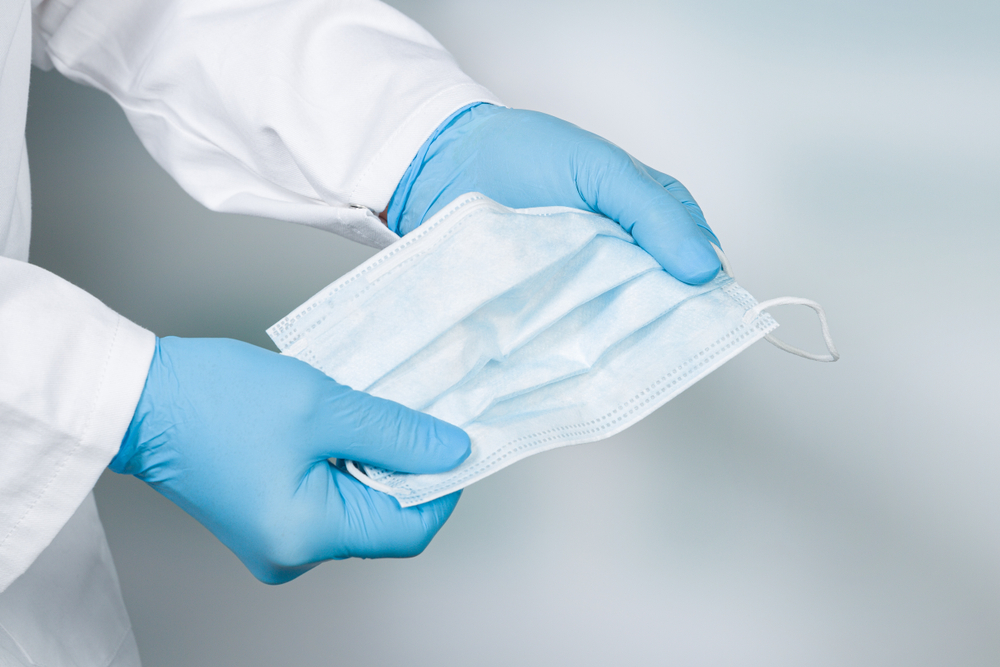2020 will be a year to forget for many reasons. There is no need to elaborate on that here. But there’s one small silver lining that’s emerged from pandemic mask-wearing: people are paying much closer attention to their oral hygiene.
Just as looking in a mirror under bright light highlights every small flaw in your skin, so wearing a mask lets you know exactly what state your mouth is in. And for many people, it’s been a nasty surprise.
If you’ve had enough of constantly inhaling your own stinky breath, the good news is that there are some things that can help. You just need to be prepared to invest a few extra minutes each day in your oral hygiene routine.
What causes bad breath?
Most cases of bad breath originate in the mouth, whether from bits of food not brushed away, plaque and tartar buildup, or dental decay.
Plaque, a sticky film of bacteria, is constantly building up on your teeth. The bacteria feed on carbohydrates found in the food and drink you consume, so the longer you leave it before cleaning your teeth, the more bacteria will grow. The acid produced by these bacteria upsets the natural balance in your mouth and damages tooth enamel.
Your saliva does a pretty good job of fighting plaque throughout the day, but if you keep snacking or drinking sugary drinks, it’s an uphill battle for your mouth to keep things in balance.
It’s normal for your breath to smell a bit from the foods and drinks you consume, but if you think it’s bad all the time, it might be because you’re not cleaning your teeth properly (see below for some guidelines). If you have untreated cavities, these will also contribute to the bad odor in your mouth.
Does wearing a mask make bad breath worse?
There are a couple of schools of thought on this. In general, the smell you experience when you wear a mask is simply a result of your breath circulating in close proximity to your nose, rather than dissipating into the air as it usually does. It’s not necessarily worse because you’re wearing a mask; you’re just much more aware of it.
On the other hand, wearing a mask all day could potentially contribute to what has been dubbed “mask mouth”, but is essentially a condition called xerostomia, or “dry mouth”.
The reasons for this are twofold. First of all, people are more likely to breathe through their mouths when wearing a mask. This dries out the saliva that’s there to keep a healthy balance of bacteria in your mouth. The result is a greater buildup of plaque bacteria, which not only contributes to halitosis but can also lead to other oral health problems like cavities and gum disease.
Secondly, that physical barrier can make you less likely to drink enough water during the day. This leads to dehydration, which in turn intensifies the effects of dry mouth.
Throw in some unhealthy snacking and lack of access to dental care and you’ve got a perfect environment for those oral bacteria to thrive.
How to get rid of mask breath
Even if you’ve missed your usual deep cleaning and your hygienist has reopened with a 3-month waiting list, there are some easy steps you can take at home to keep your breath fresher for longer.
Brush your teeth properly
It sounds obvious, but so many people have less-than-optimal habits when it comes to brushing their teeth. Whether it’s rushing through or getting distracted by social media, this is four minutes of your day that deserves your full attention.
Brush for at least two minutes, once in the morning and again before going to bed. Concentrate on brushing every surface of every tooth using small circular motions. Put the phone away so you don’t lose track of your progress.
You don’t need to use an electric toothbrush, but if you get easily distracted then a smart toothbrush can help you keep track of any bits you’ve missed. Use a fluoride toothpaste for extra protection against cavities.
Floss daily
Yes, it’s a pain, but it’s the only way to be sure you’re removing food debris and plaque from between your teeth. If you don’t get on with regular dental floss, experiment with interdental brushes or an oral irrigator. Depending on the size and position of the gaps between your teeth, you may find these tools easier to use.
Use mouthwash sparingly
Your first reaction when you smell your breath may be to reach for the mouthwash, but this can actually make the problem worse. Alcohol-based mouthwashes in particular can dry out your mouth, especially with regular use. You also shouldn’t rinse right after brushing your teeth, as it washes away the beneficial toothpaste ingredients. Instead, keep a pack of sugar-free mints or gum, or an alcohol-free breath spray, on hand.
Use a tongue scraper
If you’re going all-out on your oral hygiene, invest in a tongue scraper too. Not the back of a toothbrush, but a proper tongue scraper. Just as the name suggests, these devices scrape all the gunk off your tongue and make your whole mouth feel much fresher.
Watch what you eat and drink
Some foods like garlic, fish and curries are notorious for the effect they have on your breath. Coffee is another culprit. In addition, acidic and sugary foods encourage plaque to grow faster, and alcohol will dry your mouth out.
So, if you do decide to consume any of these things, be prepared to pay the price when you put your mask on.
Having said all of this, it’s important to add that chronic bad breath can be caused by certain medications, and it can also be a sign of an underlying medical condition. So if you’ve spruced up your oral hygiene routine and you’re not noticing any difference, try to get to a dentist for a full checkup.
Final thoughts
Whatever your view on having to wear a mask, one thing’s for sure: it’s much more bearable when your breath doesn’t stink.
Ideally, you should visit a dentist for a good teeth cleaning and to check for any other problems that could be contributing to your mask breath. But that’s easier said than done, so the next best thing you can do is get on top of your oral hygiene.



